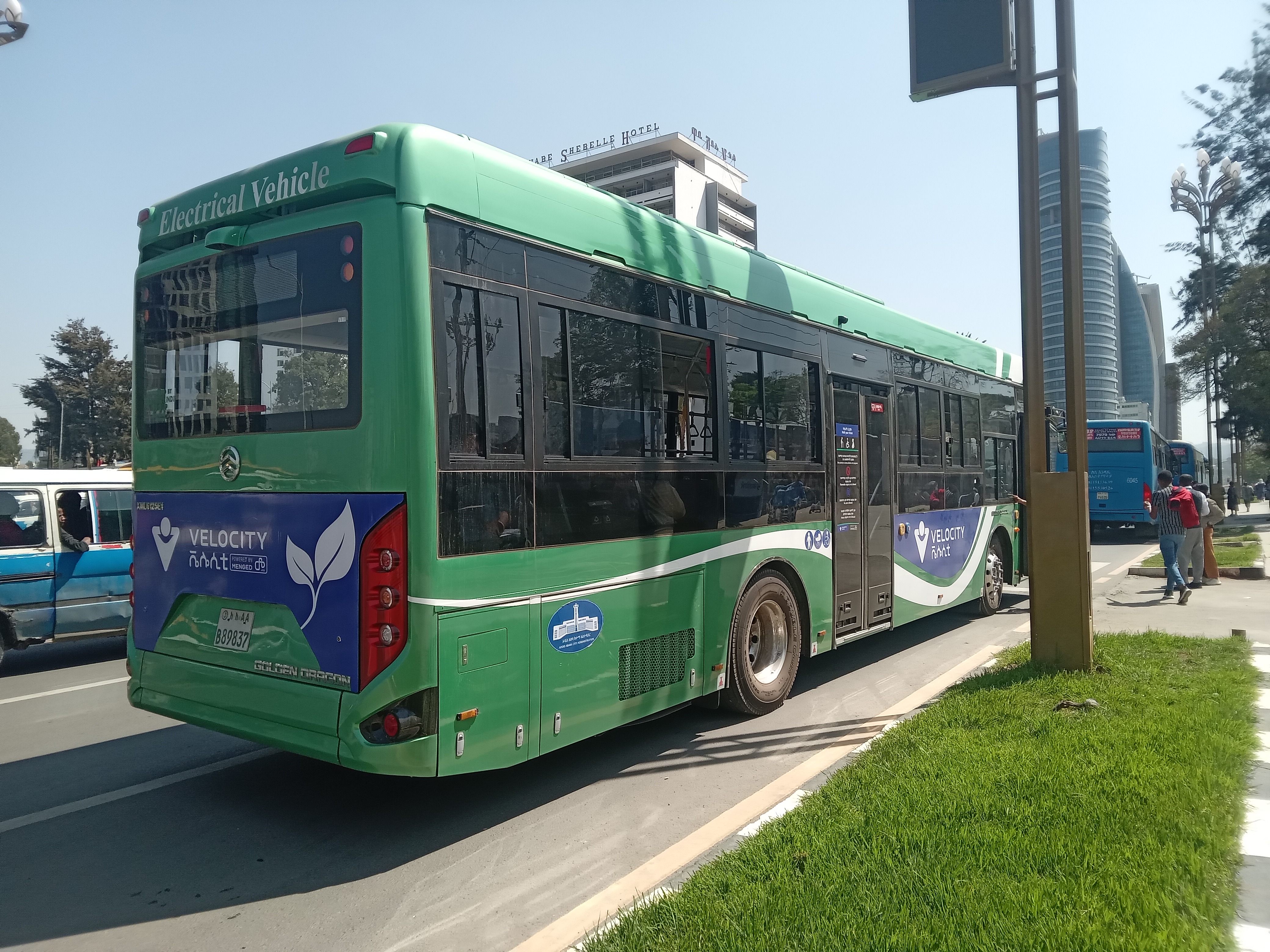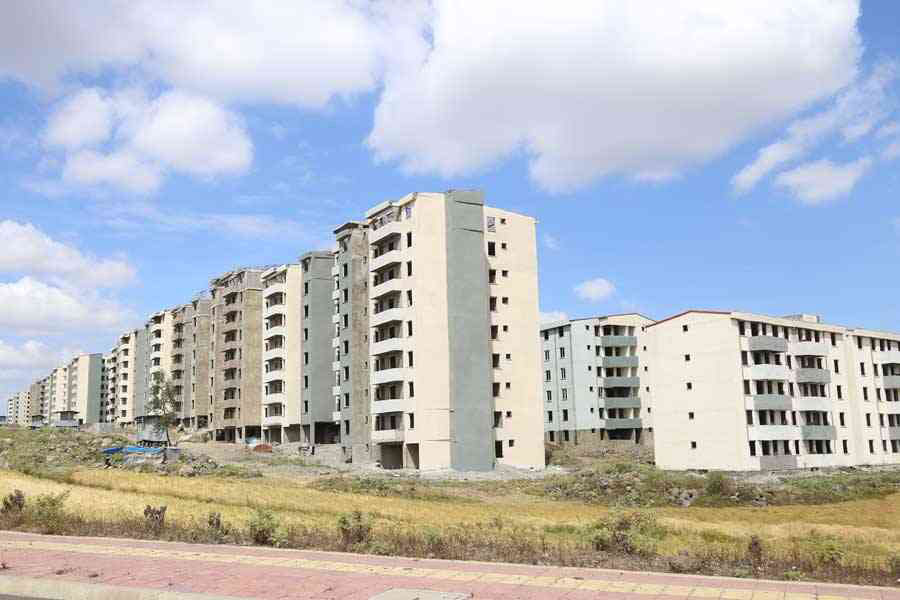
Advertorials | Jul 24,2024
Unpleasant odours have become an unwelcome companion of the 28-year-old Meron Engida (MD) during her daily commute to work. Each morning, she hastens her steps to navigate the busy streets of the Mexico area, avoiding the piercing smell from an overnight accumulation of human waste around the construction sites.
"I can't stand it, ugh!" she said.
Upon reaching Amanuel Hospital where she works as a resident, the pungent odour from the water-deprived toilet awaits. She describes that it eventually gets worse and perpetually crowded due to the immense daily footfall.
"There is an aversion towards hygiene," she told Fortune.
In stark contrast to its name, Addis Abeba faces a significant toilet shortage, contributing to a national issue where one in three households lacks proper toilet facilities. Its high-rise buildings and sprawling recreation parks hide a spectre of stench and faulty sewage systems, worsened by poor waste management.
Some have seized the opportunity. From dusk till dawn, Daniel Leulseged provides buckets to the countless passersby in the Mexico area. Earning around 200 Br daily by collecting five Birr from each customer, he has significantly improved his standard of living compared to his previous days as a security guard. Gesturing towards the row of white buckets he declared: "This is how I survive now."
Passerbys with long commutes between residence and workplace are his usual customers. Although public spaces are legally required to accommodate anyone who wishes to relieve themselves, the lack of water is often cited as the reason for service refusal.
Mamush Bekele makes a quick stop to the buckets on most nights. His long commute from Ayat to Furi coupled with the waiting time at each taxi hub made him a frequent visitor.
"I have nowhere else to pee," he said.
Public toilets remain scarce while a third of its residents rely on shared facilities. Sanitation was declared a human right by the United Nations 13 years ago. Every member country is expected to provide hygienic, secure, safe and culturally acceptable access to latrines for its citizenry. The lack of prioritisation and dedicated funding for sanitation remains critical, as outlined in a UNICEF report.
Ethiopia ranks 26th globally in open defecation burdens, prompting the organisation to launch a 46.5 million dollar project four years ago to end open defecation by 2030. The City Beautification & Green Development Bureau has built 358 facilities in the past four years, attempting to address the pressing need.
Sintayehu Mengistu, the director of Watershed & Green Development at the Bureau, cited high construction costs and incomplete designs as challenges hindering proper toilet infrastructure development. She said despite the conflicting priorities of beautifying the city and combating open defecation, legal recourse for the Bureau is limited. According to data from the Bureau, around 41 million trees have been planted across the capital last year.
"We can only improve access to facilities," she told Fortune.
To address the issue, the Bureau has floated a tender for the design of more toilets in public spaces and high-traffic areas. Currently, ownership of existing public toilets has been transferred to 303 associations, which collected 627,000 Br across the city in the last six months.
Public toilet management, however, comes with its own set of problems. Muhajir & Friends Public Toilet Association, managing eight public bathrooms in the Qirqos District, faces issues of water shortage and poor usage practices by customers. It serves an average of 300 people a day for three Birr each.
"Most people are careless," he said.
The Addis Abeba Cleaning Management Agency has deployed 11,441 street sweepers and 2,665 trash baskets throughout the capital. This initiative aims to elevate sanitation standards, with certain areas undergoing sweeping activities up to three times a day. However, Girma Hailu, the solid waste management service director at the Agency, highlights the need for comprehensive data to guide if their efforts are meeting targets.
Covering a substantial five-kilometre distance from Haile Garment to the Kadisco area, Abraham Temechu, a dedicated street sweeper for the past eight years, laments the constant challenge of maintaining cleanliness, stating: "It becomes dirty moments after we leave."
A directive was implemented six months ago, imposing penalties on 6,080 individuals for public sanitation violations. The fines, ranging from 200 Br to 20,000 Br, aim to instil a sense of responsibility and compliance.
The lack of recognition of odours from public defecation and urination as serious pollutants adds to the plight. Lemesa Gudeta, pollution control head at the Environmental Protection Authority, acknowledges the failure to recognise the putrid smell arising from public defecation and urination as a serious pollutant.
"There are no standards yet," he told Fortune.
Lemesa observes that legal measures only come up when the pollutants are intentionally dumped into open water resources with up to ten-year jail time on the card for those who are caught.
While officials believe legal measures, such as penalties for sanitation infringements, aim to instil a sense of responsibility, experts argue against such actions in the absence of adequate infrastructure and services. The two sewage lines in the city, run 131Km and 1,157Km, to provide access to a minuscule 34pc of residents. The remaining have to settle for informal sewage treatment options such as the 80 tank trucks to drain toilets.
Qality wastewater treatment plant is currently operating at only 57pc of its capacity, despite being six years into its operation. Meanwhile, the Kotebe plant is wrestling with the limitation of solely receiving waste transported by tank trucks, processing approximately 85,000cbm of wastewater annually.
Water scarcity adds to the challenge.
Addis Abeba Water & Sewage Authority relies on 238 underground wells and three dams (Gefersa, Dire, and Legedai) to source 800,000cbm of water. However, this volume falls short by half a million in meeting the current demand of the capital. Consequently, nearly 1.7 million residents receive water only twice a week.
The convergence of rapid population growth, underdeveloped sewage systems, and inadequate water supply has repercussions that extend even to residents in private buildings. Yet, the looming gloom persists as facilities, when available, face improper usage.
Natnael Afework, 31, was forced to leave an office building in the middle of moving in due to unbearable bathroom conditions. He left the three-month downpayment upfront due to the foul smell coming from the bathroom he shared with others.
At first, he resorted to putting up simple bathroom etiquette on the doors to help tenants be aware. However, the reluctance to adhere coupled with poor building designs and inadequate sewage systems have ultimately pushed the businessman to move elsewhere.
"There is a shocking lack of discipline," he told Fortune in frustration.
Consequences of open defecation extend beyond unpleasant odours; they pose severe health risks. A study by the Ethiopian Public Health Institute indicates that the Aqaqi River, near several factories, is severely polluted. Unmanaged human waste contamination increases the risk of waterborne diseases, including intestinal worms, cholera, and typhoid.
Getu Bisa, head of the disease prevention directorate at the City Health Bureau, highlighted ongoing initiatives to raise awareness of proper toilet use and handwashing, within the limitations of their mandate.
With the sanitation crisis becoming apparent, comprehensive planning, adequate infrastructure, and public awareness campaigns become increasingly evident. The challenge extends beyond foul odours; it affects the well-being and dignity of residents demanding concerted efforts.
PUBLISHED ON
Feb 03,2024 [ VOL
24 , NO
1240]

Advertorials | Jul 24,2024

Addis Fortune | Nov 04,2020

Life Matters | Nov 27,2018

In-Picture | Apr 19,2025

Radar | Oct 14,2023

Commentaries | Feb 25,2023

Radar | Jan 12,2019

Fortune News | Mar 11,2023

Commentaries | Jul 13,2024

Radar | Sep 27,2025

Dec 22 , 2024 . By TIZITA SHEWAFERAW
Charged with transforming colossal state-owned enterprises into modern and competitiv...

Aug 18 , 2024 . By AKSAH ITALO
Although predictable Yonas Zerihun's job in the ride-hailing service is not immune to...

Jul 28 , 2024 . By TIZITA SHEWAFERAW
Unhabitual, perhaps too many, Samuel Gebreyohannes, 38, used to occasionally enjoy a couple of beers at breakfast. However, he recently swit...

Jul 13 , 2024 . By AKSAH ITALO
Investors who rely on tractors, trucks, and field vehicles for commuting, transporting commodities, and f...

Oct 4 , 2025
Eyob Tekalegn (PhD) had been in the Governor's chair for only weeks when, on Septembe...

Sep 27 , 2025
Four years into an experiment with “shock therapy” in education, the national moo...

Sep 20 , 2025
Getachew Reda's return to the national stage was always going to stir attention. Once...

Sep 13 , 2025
At its launch in Nairobi two years ago, the Africa Climate Summit was billed as the f...